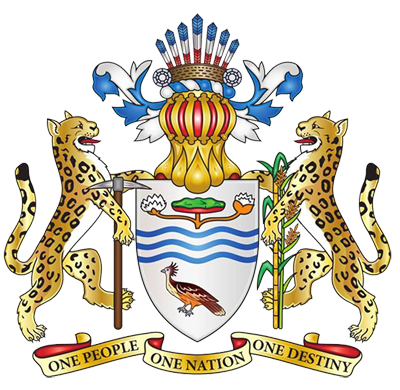Presse Release

The President of the Islamic Development Bank expresses his heartfelt thanks and deep gratitude to the Custodian of the Two Holy Mosques, king Salam bin Abdulaziz, and to H.H. crown prince Mohammed bin Salman, for their great support to the Saudi Project for Utilization of Hajj Meat
Jeddah, 2nd December 2019
Pursuant to the royal decree on modernising the slaughterhouses of the Saudi Project For Utilization of Hajj Meat (Adahi), managed by the Islamic Development Bank (IsDB), His Excellency Dr. Bandar bin Mohammed Hamza Hajjar, President of the IsDB, and Engineer Khalid Al-Othman, Executive Manager of Imar have signed at the IsDB Headquarters in Jeddah a contract for designing high-technology slaughterhouses, which will be implemented jointly by Imar Engineering Consultants (Saudi Arabi) and IDOM (Spain).
The contract stipulates the design of a fully-fledged slaughterhouse complex with high quality technical features. The project components include the construction of several modern slaughterhouses to replace some of the current ones in order to utilise all the components of the sacrificed carcasses and increase the capacity of the slaughterhouses to meet the growing demand due to the increasing numbers of Hajj and Umrah performers, expected to reach 30 million according to the Kingdom’s 2030 Vision. This project, which is the greatest of its kind in the world, includes:
- Slaughtering, skinning and cutting plant.
- Central meat freezing complex.
- Meat boxing plant.
- Remains utilisation plant.
- Preservation and packaging tools production plant.
- Tannery plant.
- Water filtering and reuse station.
- Alternative energy plant.
With this project, Saudi Arabia is preparing for a paradigm shift that will allow an optimal utilisation of the sacrificial meat, an efficient and a quality treatment of the solid organic wastes emanating from slaughterhouses, the use of renewable energy, and waste water & skins treatment facilities, in addition to other activities linked to the project. It is worth mentioning that several local and international consultants participated to the bidding process for provision of design advisory services of the project, but an alliance of Imar Engineering Consultants with international partners won the contract.
The project aims at achieving the 2030 Vision targets related to the Programme to serve pilgrims, which strengthens the capacity to accommodate Hajj and Umrah performers while increasing the quality and efficiency of the services provided by the Hajj system, in addition to the objectives set in the National Transformation Programme for the environment sector through which the Kingdom endeavours to limit all kinds of pollution. This programme has started yielding results; the Kingdom achieved significant progress in its global ranking in terms of environment service, as it moved from the 95th to the 53rd position.
During the signing ceremony, the IsDB President, His Excellency Dr. Bandar bin Mohammed Hamza Hajjar, has congratulated the Custodian of the Holy Mosques and His highness Crown Prince for this world-class quality flagship project through which Saudi Arabia attempts to serve pilgrims from around the world. He has added that the project enjoyed unlimited support from the Kingdom which generously provides funds for projects related to the two Holy Mosques and the Holy Sites to serve the pilgrims. This project related to Hajj comes in response to the directives of the Saudi leadership which is always keen on improving the services provided to pilgrims.
Dr. Hajjar also has stressed that the nature of this project makes it unique in the world in terms of the services it provides in no more than 84 hours -total number of hours of the permissible slaughtering period- in Mina which accommodates about three million pilgrims at the same time.
Dr. Hajjar has added that the project intends to increase the number of slaughtered animals during the permissible slaughtering period from 1.2 million to 5 million by 2030 (in closed as well as open to public slaughterhouses) and achieve enough flexibility in all facilities to further increase this number.
His Excellency has pointed out that according to the project plan, four types of works must be carried out by the design consultants:
- Engineering and structural works (infrastructure)
- Mechanical works (sanitary installations, cold rooms, mechanical works of slaughtering equipment)
- Electrical works (renewable energies, sensors, electrical grid stations).
- Slaughtering works and support operations (slaughtering, freezing & storing, meat boxing operations, skins treatment, solid organic wastes treatment, freezing and refrigerated storage).
The project will be constructed on the northern limit of Mina, and it will be connected to the Holy Sites and Holy Mecca with a modern road network.
